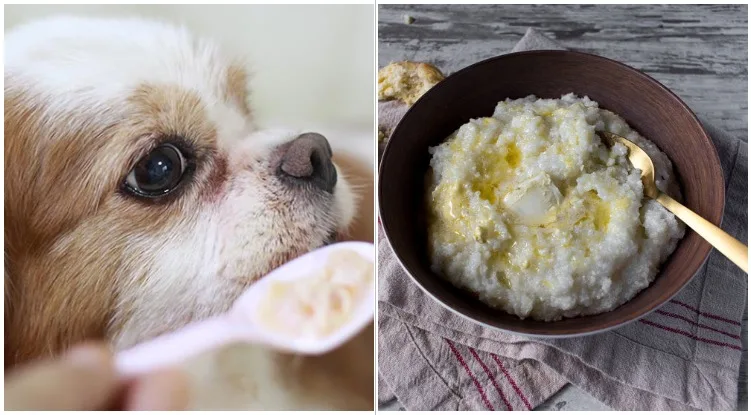If you’re not a fan of oatmeal, but still like to eat something warm and quick in the morning then maybe your choice is grits. It’s easy to make when you’re running late or just don’t want to whip up something more complicated. However, when you’re in a hurry, is it also ok to give it to your pet? Can dogs eat grits?
If you thrive on your rich and creamy grits for breakfast, than you might feel tempted to share them with your canine. However, how safe is that? And should dogs even eat grits at all?
Before sharing your gritty breakfast with your canine, read this article and inform yourself about the possible side effects of feeding grits to your dog. Because let us tell you — there definitely are some!
Can dogs eat grits?
Grits is maid of corn or maize. Both of them are considered good ingredients and not toxic for dogs. While that seems like good news, it’s all there really is to say about grits.
While eating some grits for breakfast won’t put your dog into the emergency room, it’s still not recommended for dogs to eat them. And the reasons are pretty valid.
Are grits healthy for dogs?
While grits are not toxic for dogs, they don’t provide too much nutritional value to your dog’s diet. In most cases, grits are just a filler food. It’s a common compound in cheap dog food and just adds some empty calories to your dog’s diet.
While a small amount of grits from time to time will be completely fine to share with your dog, it’s important not to overdo it. Those extra calories in your dog’s diet can lead to weight gain and therefore the risks of obesity are much higher.
While grits do contain some folate, amino acids, carbohydrates and even proteins — the downsides still outweigh the benefits.
What are the risks of grits for dogs?
There are different reasons as to why grits are not recommended for dogs. Here are some of them:
They are full of carbohydrates. A healthy dog doesn’t need to have too many carbs in his diet. The carbs he gets from fruits and vegetables are more than enough, so the ones from grain and wheat are considered excessive. Carbs raise the blood sugar levels of your canine and can lead to weight gain and eventually even obesity.
Too much sodium. Grits are also rich in sodium. 100 gram of grit contains 223 mg of salt or 9% of it. A 33-pound dog should not consume more than 100 mg of sodium daily and grits already have more then double the recommended dose!
Corn kernels or grits block the GI tract. In some cases grits and corn can even block the gastrointestinal tract of your canine. They could even be a possible chocking hazard.
Grits are very difficult to digest for dogs. If the grits don’t block the gastrointestinal tract of your canine, they can still be very difficult to digest. Their digestive system isn’t designed to digest grits and eating them could lead to some serious stomach issues.
Corn is a common allergen for dogs. This is a widely known fact. Many dogs are allergic to corn so be aware of that before giving any grits to your canine.
Weight gain. Lime we already said, grits are rich in carbs and calories. So if your dog consumes excessive amounts of grits in his diet, he may put on some weight which puts him at a risk of obesity.
Additionally, any “extras” that you may add to the grits like butter or milk would only make things worse. That’s why it’s best to avoid them when feeding your dog.

